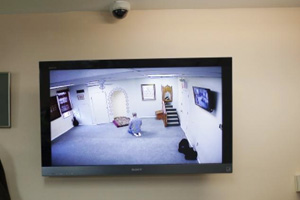Jeddah, Dec 2: Mosques in the Kingdom will soon have close circuit cameras and a smart control system to monitor imams and muezzins (prayer callers) as they perform prayers, religious rituals and deliver sermons. The move will help record any irregularities or violations in the mosque.
According to Abdullah Al-Howaimel, undersecretary for administrative and technical affairs at the Ministry of Islamic Affairs, Endowments, Call and Guidance, all mosques will be managed by the electronic system that automatically records the activities in mosques.
“The study of the project has been completed but its implementation will be done in stages,” Al-Howaimel said.
He added that the first stage would be implemented after the Ministry of Finance sanctions the necessary funds next month. It will be allocated to the large mosques across the Kingdom followed by the smaller ones, in the next stage in order of priority.
Al-Howaimel explained that the project will address the problem of theft of appliances in mosques and will allow the ministry to fully monitor the prayer houses electronically.
“The installing of the cameras does not mean dispensing with the employees tasked with monitoring the mosques, because they have other duties such as maintaining hygiene,” he noted.
Pointing out that the new smart control system will also include air-conditioning, lighting, voice control, broadcasting messages, storage of preachers’ lectures and CCTVs, he said that the system would help reduce energy costs by 80 percent, lengthen the life span of appliances and facilities and decrease maintenance costs.
The system is considered to be one of the most advanced in use in buildings for its direct and indirect benefits to both the premises and environment as it minimizes the human role in the basic functions.





Comments
Add new comment